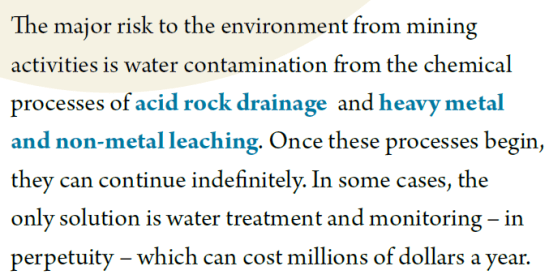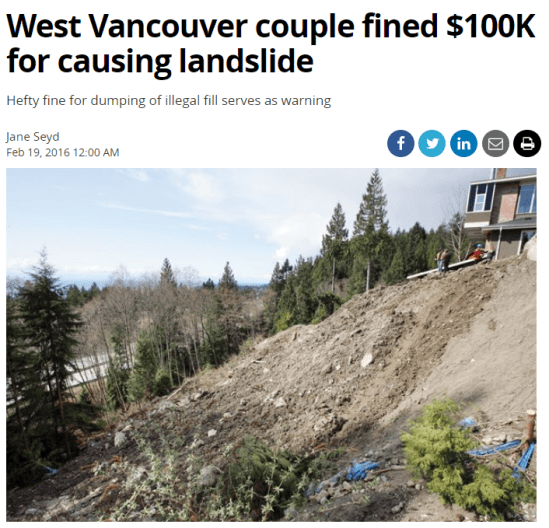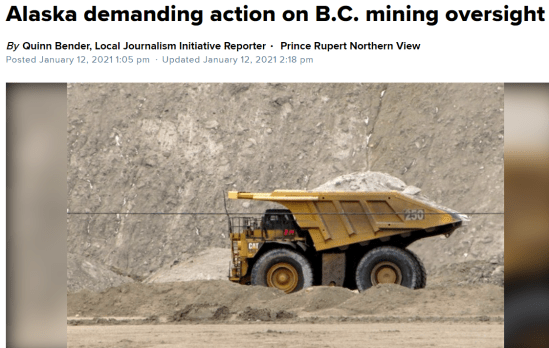In May 2016, British Columbia’s Auditor General Carol Bellringer released An Audit of Compliance and Enforcement of the Mining Sector. It was a scathing but underreported report quickly forgotten by mainstream media.
In initial comments leading the report, Ms. Bellringer wrote:
Regardless of whether the mining industry is experiencing growth or slow-down, protection of the environment needs to be ensured. This is only possible through strong regulatory oversight...
We found almost every one of our expectations for a robust compliance and enforcement program within the MEM and the MoE were not met.
We found major gaps in resources, planning and tools. As a result, monitoring and inspections of mines were inadequate to ensure mine operators complied with requirements. The ministries have not publicly disclosed the limitations with their compliance and enforcement programs, increasing environmental risks, and government’s ability to protect the environment.
During the course of this audit, these risks became a reality and disaster occurred when the tailings dam at Mount Polley failed – releasing approximately 25 million cubic metres of wastewater and tailings into adjacent water systems and lakes. It may be many years before the financial, environmental and social implications are fully known.
The Auditor General found that lack of enforcement was a fundamental problem, not just at Mount Polley, but throughout the two ministries responsible for regulating mines and protecting the environment. The AG stated that ministries promoting industrial development while regulating those same industries “creates an irreconcilable conflict.“
Unregulated or self-regulated capitalism has been celebrated by Liberal leader Kevin Falcon who, according to Laila Yuile, advocates a slice-and-dice, deregulate-and-privatize style of government. Of course, licenses to pollute and destroy are only allowed large corporations. That was learned by a couple responsible for a landslide that affected a tiny creek on the North Shore.

The Auditor General determined in 2016 that government was not holding security to cover the estimated environmental liabilities at major mines. The ministry estimated the unfunded liability for all mines was $1.2 billion. Business executive Robyn Allan argued the amount was more than $1.5 billion.
This “very large and involved audit” included comprehensive recommendations to reduce future environmental destruction but Ms. Bellringer encountered “disconcerting” resistance from the government. It refused to implement important reforms urged by the Auditor.

For example, the province admitted there was a potential risk of regulatory capture but said the audit had not provided conclusive evidence to prove it was a continuing problem.
Government applauded its own environmental regulation of Elk Valley mining in southeast BC. Yet Teck Resources was fined $60 million for selenium pollution. That was the largest fine ever levied for violations of Canada’s federal Fisheries Act, but even in 2022, the International Joint Commission has been pleading for further actions to study and resolve coal mine pollution oozing across the border.
Inadequate regulation of mining concerns British Columbia’s northern neighbours as well.

A lesson BC politicians relearned after experiences with Carol Bellringer and with predecessor John Doyle, is to hire Auditors General who understand their role is to quietly nudge governments, not to offer criticisms that affect public confidence. Michael Pickup may be that person.
Even though government had refused to implement 2016 recommendations, in a recent report, the present Auditor General found that government had developed “adequate policies and procedures” in response to the earlier audit.
I conclude Mr. Pickup underestimated the BC New Liberal Democrat’s use of political theatre to give appearance of doing the right things while acting negatively or doing almost nothing.

AG Pickup noted establishment of the Mines Investigations Unit to investigate serious incidents, including environmental damage incidents. While provincial websites publish much information about how MIU and other regulatory activities are supposed to operate, government publishes only three incident reports: one from four years ago, a second from eight years ago, and a third that is over 16-years-old. Eight inspectors now covering the entire province may not have time to write reports.
Michael Pickup wrote that government had developed a reclamation security policy to decrease the difference between liabilities and security provided by mining companies. In 2016, the Bellringer report found that to be $1.2 billion. According to Pickup, the security shortfall in 2021 was approximately $1.14 billion. A new policy may have been issued, but it made an insignificant difference.
Resource extraction industries have invested heavily to lobby government and convince the public that all is well but performative regulation of inherently destructive industries does not protect the public interest.
Categories: Environment







Meanwhile in Alberta here’s how they spend federal money designated for orphan well cleanup:
“About half the funds in Alberta went to 10 companies that are expected to remain financially viable over the next few years, including some of Canada’s largest energy producers — Canadian Natural Resources Ltd, Imperial Oil, and Cenovus Energy, budgetary officials said. All have benefited from surging oil prices.”
https://financialpost.com/commodities/energy/oil-gas/canada-watchdog-says-funds-for-inactive-oil-well-clean-up-may-fall-short
As for Alberta’s security on mining liabilities?
“The government currently holds $1.5 billion in security on mining liabilities of $31.5 billion, says the report.” (That might seem way worse than BC, but it includes the oil sand operations.)
https://www.cbc.ca/news/canada/edmonton/alberta-auditor-mines-cleanup-oilsands-1.6061474
Here in BC one Fazil Mihlar not only oversees the Mines Investigations Unit, but is Chair of the BC Oil and Gas Commission, with responsibility for compliance and enforcement, in addition to liability management.
https://thetyee.ca/News/2022/01/24/BC-Oil-Gas-Cleanup-Wrong-Direction/
So rest assured. The environment is in good hands.
LikeLike